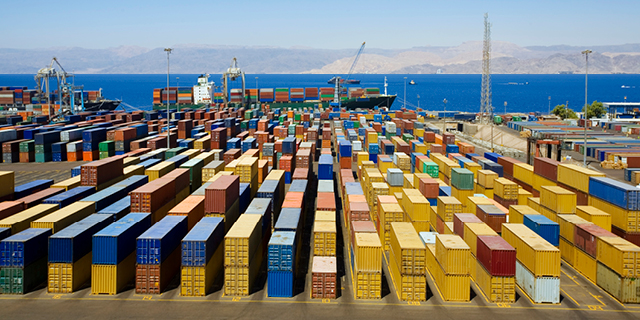Environmental, Social & Governance Briefs
2019
-
CSR in India: Mandatory and So Much More
February 22 | Jeff Hoffman, Institute Leader, Corporate Citizenship & Philanthropy, ESG Center, The Conference Board | Comments (0)India is the first country in the world to make corporate social responsibility (CSR) mandatory, following an amendment to the Companies Act, which requires companies with a net worth above Rs 5 billion, revenues above Rs 10 billion, or net profits of Rs 50 million or more to spend 2 percent of net profits on CSR initiatives. The country has countless priorities that companies can look to for guidance on CSR initiatives.
-
Partnering for Disaster Preparedness in Chile
February 12 | Lars Battle, Senior Editorial Coordinator, PYXERA Global | Comments (0)The term “natural disaster” is a misnomer. Natural ecosystems often require disturbances such as fires and floods to remain healthy. They have an inherent resilience to the occasional battering. Crises created by destructive natural events might be more aptly referred to as “social disasters,” because of the toll of life and economic damage left in their wake. Framing such events as social disasters places them in a different light, shifting the burden on all sectors of society to proactively ma
-
The Conference Board Launches Expanded Benchmarking Project on Corporate Citizenship
February 07 | Alex Parkinson, Former Communications Institute Co-Leader, The Conference Board | Comments (0)The Conference Board has launched an expanded initiative to track and benchmark societal investments, and their resulting impact, extending the organization’s 75 years of leadership in corporate citizenship research.
-
Sustainability Reporting Across Asia: Trends and Challenges
February 01 | Anke Schrader, Former Research Director, Asia, The Conference Board | Comments (0)The Conference Board recently released its annual study on the state of corporate sustainability disclosure around the world. The research assesses environmental and social disclosure practices of the 250 largest publicly traded companies domiciled in each of the 10 largest economies (by GDP at purchasing power parity) in North America, Europe and Asia-Pacific. As we look to Asia, what are key trends in reporting practices across the region? Where do we see the biggest challenges ahead?
-
Large U.S. companies are among the most active in sustainability reporting
January 23 | Thomas Singer, Former Principal Researcher, The Conference Board | Comments (0)Research on corporate sustainability reporting finds that large U.S. companies, even in the absence of domestic nonfinancial reporting requirements, are more transparent than their peers in much of the world. Sustainability disclosure by U.S. companies is largely driven by pressure from stakeholders.
-
ESG reporting practices in Europe – Now and In the Future
January 18 | Anuj Saush, ESG Center Leader, Europe, The Conference Board | Comments (0)Key trends related to the corporate disclosure of environmental and social practices in Europe
-
Employees Provide Insights for Companies Seeking to Establish Board Programs
January 16 | Alice Korngold, Author, A Better World, Inc.: How Companies Profit by Solving Global Problems...While Governments Cannot | Comments (0)Seventy-four percent of employees who do not serve on nonprofit boards are interested in doing so. This is a great opportunity for talent development of millennials and employees from diverse backgrounds, two groups underrepresented on boards. Companies can make board work happen for their employees by helping them find suitable matches in the nonprofit sector, by training them in the legal and oversight responsibilities they will need, and by supporting and recognizing them for their work.
-
Five Corporate Social Responsibility Trends to Watch in 2019
January 10 | Timothy J. McClimon, Former President, American Express Foundation and Senior Vice President, Corporate Social Responsibility, American Express | Comments (0)Despite research suggesting most consumers feel that businesses should take an active role in driving social and environmental changes, in 2019 companies are likely to tone down their public advocacy. As companies plan for 2019 with a divided government in Washington, it could be important to navigate new policies and regulations with dialogue on the issues.
-
Will AI Regulation Stifle Potential for Social Good?
January 03 | Alex Parkinson, Former Communications Institute Co-Leader, The Conference Board | Comments (0)Artificial intelligence (AI) could help to address significant societal challenges, including those identified in the United Nations Sustainable Development Goals (SDGs). For organizations that seek to use such technology for social good, an understanding of the existing use cases and potential for social impact should be considered within the context of a heightened regulatory framework that might stifle successes.










.JPG)









